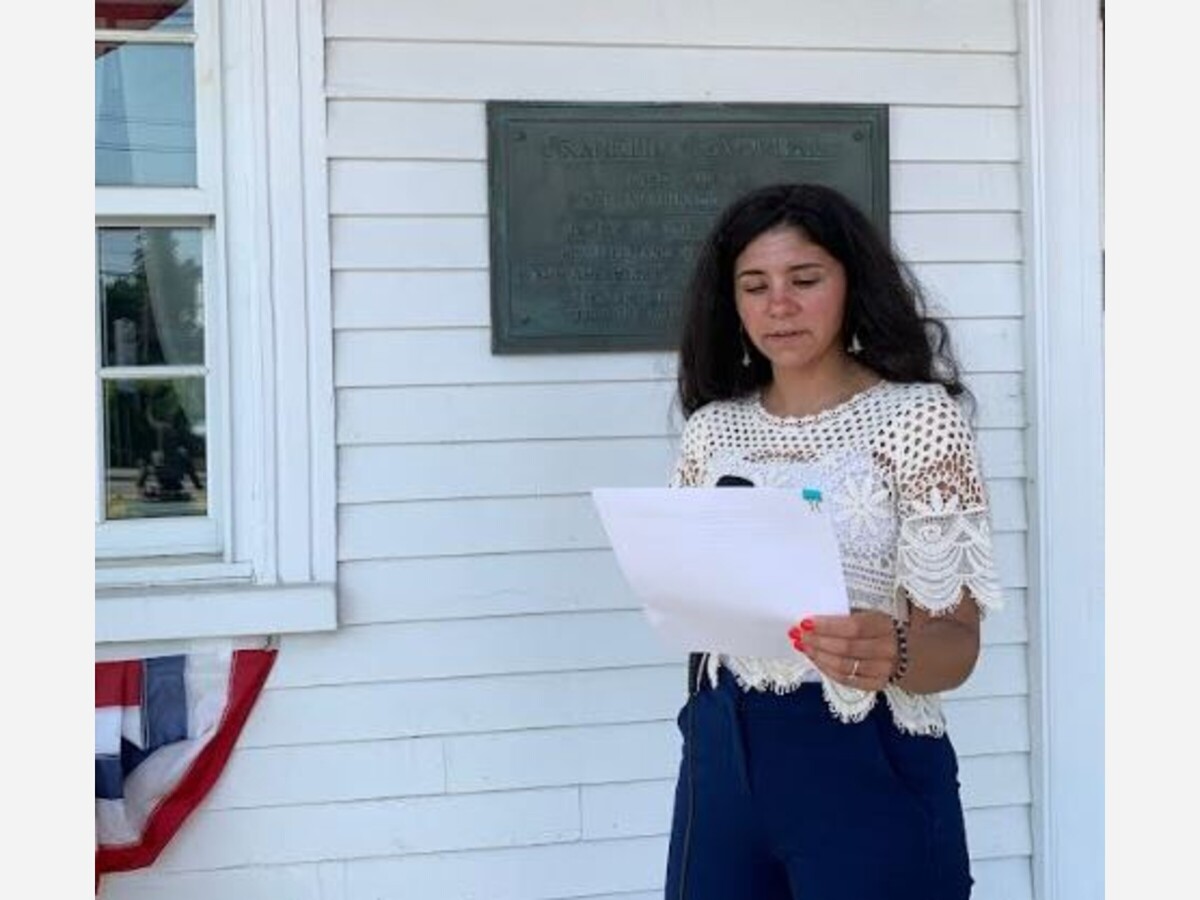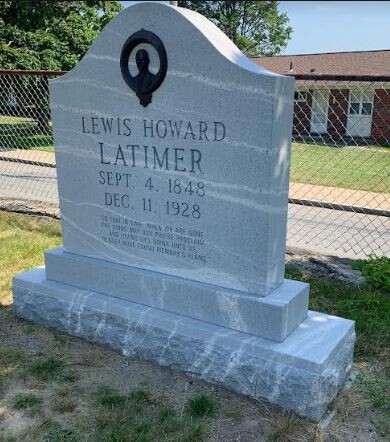Image

Juneteenth got a start locally with Republican Town Committee Chair, Dashe Vidiera reading the text of Abraham Lincoln’s Emancipation Proclamation from the steps of the town museum – a building that served as the Town Hall when Lincoln was president. Though the crowd was small, Videira reflected on the value of the document today. “Reading the Emancipation Proclamation is both exhilarating –because we know it finally erased slavery from the lives of millions --and sad, because we know the job wasn’t finished and remains a challenge for our society,” she said.
News of the 1863 Emancipation Proclamation didn’t reach the enslaved people of Galveston, Texas, until June 19, 1865 – thus the origin of the Juneteenth holiday. Juneteenth was celebrated as a state holiday in Massachusetts for the first time in 2021, following a law signed in July 2020 by former Gov. Charlie Baker.
In a statement issued later on Wednesday, State GOP Chair, Amy Carnevale wrote, in part:
Today, we commemorate Juneteenth, a pivotal moment in American history when, on June 19, 1865, the last enslaved African Americans in Galveston, Texas were informed of their freedom, two and a half years after President Lincoln’s Emancipation Proclamation. This day serves as a profound reminder of the enduring struggle for freedom, justice, and equality that has shaped our nation.
The Massachusetts Republican Party stands in solidarity with the Black community in recognizing the significance of Juneteenth. This day not only marks the end of a dark chapter in our history but also celebrates the resilience, strength, and enduring spirit of Black Americans. It is a day to honor the countless contributions that Black Americans have made to our country, in the face of adversity and oppression.
Gov. Maura Healey and Lt. Gov. Kim Driscoll attended a Juneteenth flag raising Wednesday morning, along with Inspector General Jeffrey Shapiro and lawmakers including Reps. Chris Worrell, Samantha Montaño, Brad Jones, Donald Wong, Manny Cruz, William MacGregor, Dawne Shand, Rita Mendes, Vanna Howard, Russell Holmes, Chyna Tyler, Brandy Fluker Oakley and Sens. Nick Collins and Lydia Edwards.
Healey called Juneteenth a day to celebrate the resilience, strength and spirit of the Black community. "We are endeavoring every day to live by principles of equity and inclusion, and ensuring that both in law and in policy and in action, that we are doing all we can to address persistent systemic racial disparities," Healey said.
* * * * * *

With a holiday in hand and plenty of sunshine the editor found himself on the South Coast Wednesday, and in the historic Oak Grove Cemetery in Fall River, where he found the final resting place of Lewis Latimer. We quote from the Vive Fall River web page about Latimer:
Lewis Howard Latimer (September 4, 1848 – December 11, 1928) was an influential inventor and celebrated patent drafter who aided Thomas Edison in the invention of the light bulb during the 19th century. Buried in Fall River’s Oak Grove Cemetery, Latimer was supplied a long overdue headstone on his gravesite in September of 2023.
Lewis A. Latimer had a rather layered family history. His parents escaped slavery in the South through the network of the Underground Railroad, finally settling in Boston. After a tumultuous period where Lewis’ father, George Latimer’s freedom was threatened, a free Black minister paid for George Latimer’s freedom which allowed his family to stay in the Boston area.
Lewis A. Latimer was born in Chelsea in 1848, and even fought in the Navy during the tail end of the Civil War despite his youth. He took a step towards solidifying his later career when he worked in the office of a patent clerk. Latimer’s skill was recognized and he was eventually promoted all the way up to head draftsman.
In 1876, Latimer had a big break when he was hired to create the blueprints for the Alexander Graham Bell’s telephone, successfully submitting the patent just hours before a fellow rival.
Latimer invented a myriad of things including electric lamps, a railroad toilet, a tool to support books on shelves and even an early air conditioning device. In the 1880s, Latimer became the preeminent expert on electric lighting systems in both New York and Philadelphia, where he installed some of the first electric lighting systems in the area. He helped to democratize the electric lighting industry by increasing its affordability.
At General Electric, alongside Thomas Edison, he installed himself as the resident patent expert and invented a new way to create the carbon filament for light bulbs that resulted in much greater longevity.
Latimer had many skills that extended beyond inventing alone, including music, painting, poetry and playwriting. He was also an active member of the early movement for Black Civil Rights.
Latimer’s connection to Fall River materialized with his marriage to Mary Lewis on Robeson and Bedford Streets on November 15, 1873.